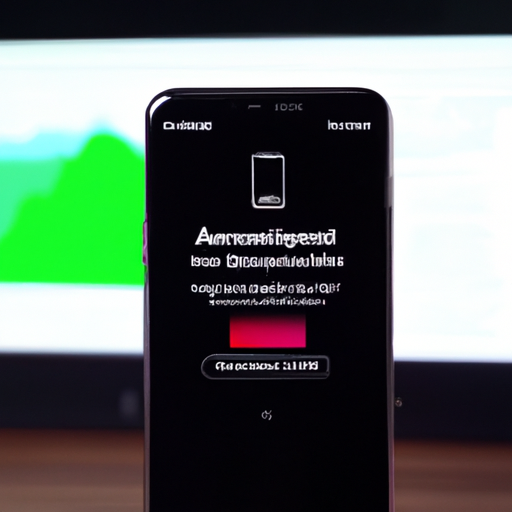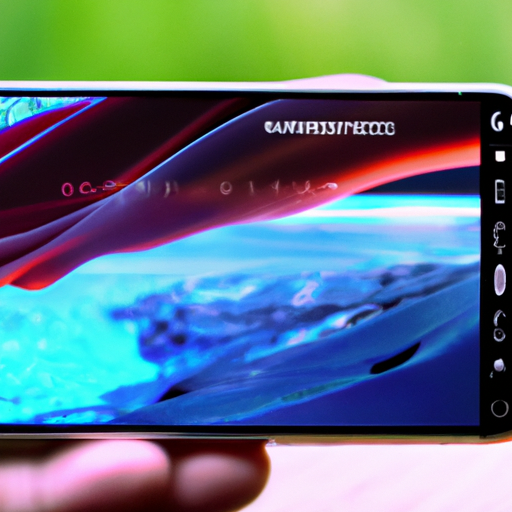How Samsung Display’s Lawsuit Against Chinese Competitor Could Impact the iPhone
Samsung Display recently filed a lawsuit against its Chinese competitor, BOE Technology Group, alleging that BOE had stolen its OLED display technology. This lawsuit could have a significant impact on the iPhone, as Samsung Display is the sole supplier of OLED displays for the iPhone X and XS.
If Samsung Display is successful in its lawsuit, it could mean that BOE will be unable to produce OLED displays for the iPhone. This could lead to a shortage of OLED displays, which could cause Apple to delay the release of the next iPhone or to increase the price of the device.
On the other hand, if Samsung Display is unsuccessful in its lawsuit, it could mean that BOE will be able to produce OLED displays for the iPhone. This could lead to increased competition in the OLED display market, which could drive down the cost of OLED displays and make them more affordable for Apple.
Ultimately, the outcome of Samsung Display’s lawsuit against BOE will have a significant impact on the iPhone. If Samsung Display is successful, it could lead to a shortage of OLED displays and higher prices for the iPhone. If Samsung Display is unsuccessful, it could lead to increased competition in the OLED display market and lower prices for the iPhone.
Exploring the Alleged Patent Infringement at the Center of Samsung Display’s Lawsuit
Are you curious about the patent infringement lawsuit between Samsung Display and LG Display? It’s a complex case, but we’ll break it down for you.
At the center of the lawsuit is a patent infringement claim by Samsung Display against LG Display. Samsung Display alleges that LG Display has infringed upon its patents related to organic light-emitting diode (OLED) display technology.
Samsung Display claims that LG Display has used its patented technology without permission, and is seeking damages for the alleged infringement. LG Display, on the other hand, denies the allegations and has filed a countersuit against Samsung Display.
The case is currently in the early stages, and it remains to be seen how it will play out. However, it is clear that the two companies are locked in a legal battle over the alleged patent infringement.
The dispute between the two companies is a reminder of the importance of protecting intellectual property. Companies must be aware of the potential risks of using patented technology without permission, and must take steps to ensure that they are not infringing upon the rights of others.
It will be interesting to see how this case plays out, and what the outcome will be. In the meantime, it is important to remember that patent infringement is a serious issue, and companies must take steps to protect their intellectual property.
Examining the Potential Impact of Samsung Display’s Lawsuit on the Smartphone Market

The recent lawsuit filed by Samsung Display against its rival LG Display has raised some interesting questions about the future of the smartphone market. While the outcome of the case is still uncertain, it is worth examining the potential impact that this legal battle could have on the industry.
First and foremost, it is important to note that the lawsuit is focused on the display technology used in smartphones. Samsung Display is accusing LG Display of infringing on its patents related to organic light-emitting diode (OLED) displays. OLED displays are becoming increasingly popular in the smartphone market due to their superior picture quality and energy efficiency.
If Samsung Display is successful in its lawsuit, it could have a significant impact on the smartphone market. Samsung Display is the world’s largest supplier of OLED displays, and a victory in the lawsuit could give it a monopoly on the technology. This could lead to higher prices for OLED displays, which could in turn lead to higher prices for smartphones that use them.
On the other hand, if LG Display is successful in defending itself, it could open up the market to more competition. This could lead to lower prices for OLED displays, which could in turn lead to lower prices for smartphones that use them.
Ultimately, the outcome of the lawsuit will have a major impact on the smartphone market. It remains to be seen which company will come out on top, but it is clear that the stakes are high for both sides.
What the Future Holds for Samsung Display After Filing a Lawsuit Against a Chinese Competitor
The future of Samsung Display is uncertain after the company filed a lawsuit against a Chinese competitor. The lawsuit, which was filed in the United States District Court for the Northern District of California, alleges that the Chinese company, BOE Technology Group Co., Ltd., infringed on Samsung Display’s patents related to organic light-emitting diode (OLED) display technology.
The lawsuit is a major step for Samsung Display, as it seeks to protect its intellectual property and maintain its competitive edge in the OLED display market. The lawsuit could have a significant impact on the future of Samsung Display, as it could lead to a settlement or a court ruling that could affect the company’s ability to compete in the OLED display market.
If Samsung Display is successful in its lawsuit, it could lead to a significant increase in the company’s market share and profits. This could be beneficial for the company, as it would allow it to invest more in research and development and expand its product offerings.
On the other hand, if Samsung Display is unsuccessful in its lawsuit, it could lead to a decrease in the company’s market share and profits. This could be detrimental for the company, as it would limit its ability to invest in research and development and expand its product offerings.
Regardless of the outcome of the lawsuit, Samsung Display will continue to be a major player in the OLED display market. The company has a long history of innovation and has been a leader in the OLED display market for many years. Samsung Display will continue to invest in research and development and expand its product offerings in order to remain competitive in the OLED display market.
Analyzing the Legal Strategies Behind Samsung Display’s Lawsuit Against a Chinese Competitor
Samsung Display recently filed a lawsuit against a Chinese competitor, BOE Technology Group, for patent infringement. This lawsuit is part of a larger effort by Samsung to protect its intellectual property and maintain its competitive edge in the display market. In this article, we’ll take a closer look at the legal strategies behind Samsung’s lawsuit and how it could affect the future of the display market.
First, Samsung is relying on the strength of its patents to protect its intellectual property. Samsung has a portfolio of over 10,000 patents related to display technology, and it is using these patents to assert its rights against BOE. By filing a lawsuit, Samsung is hoping to prevent BOE from using its patented technology without permission.
Second, Samsung is also relying on the power of the courts to enforce its rights. By filing a lawsuit, Samsung is hoping to obtain an injunction that would prevent BOE from using its patented technology. This would give Samsung a competitive advantage in the market and help it maintain its market share.
Third, Samsung is also hoping to use the lawsuit to send a message to other competitors. By taking legal action against BOE, Samsung is hoping to deter other companies from infringing on its patents. This could help Samsung protect its intellectual property in the future and maintain its competitive edge in the market.
Finally, Samsung is also hoping to use the lawsuit to obtain monetary damages from BOE. If Samsung is successful in its lawsuit, it could receive monetary compensation for the infringement of its patents. This could help Samsung recoup some of the losses it has suffered due to the infringement.
Overall, Samsung’s lawsuit against BOE is a strategic move to protect its intellectual property and maintain its competitive edge in the display market. By relying on the strength of its patents, the power of the courts, and the potential for monetary damages, Samsung is hoping to send a message to other competitors and protect its intellectual property in the future.
